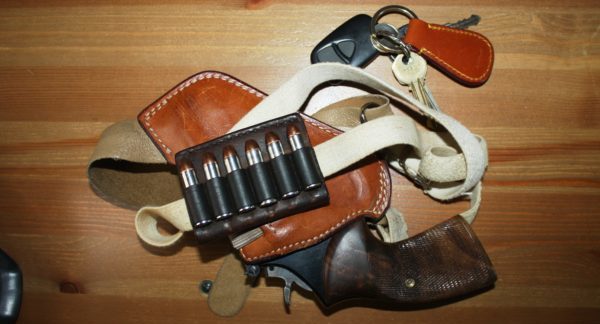
A federal appeals court panel is scheduled to hear oral arguments today in a challenge of an Illinois law banning licensed concealed carry on public transit, according to a report at Bloomberg Law.
The case is known as Schoenthal v. Raoul, and is being supported by the Second Amendment Foundation and Firearms Policy Coalition. According to the court calendar, arguments are scheduled to begin at 9:30 CDT.
Filed originally in September 2022, the case was brought by four men, are Benjamin Schoenthal, Mark Wroblewski, Joseph Vesel and Douglas Winston. They are all residents of counties in northern Illinois in the greater Chicago area. They are represented by attorney David G. Sigale of Lombard, Ill., and Cooper & Kirk of Washington, DC.
At the time the case was filed, SAF founder and Executive Vice President Alan Gottlieb explained, “We’re financially supporting this case because it is the right thing to do. All four plaintiffs in this case are law-abiding citizens who cannot exercise their fundamental rights as spelled out by three Supreme Court rulings, including SAF’s 2010 McDonald victory that nullified Chicago’s unconstitutional handgun ban.
“Illinois lawmakers have made it as difficult as possible for honest citizens to exercise their right to bear arms,” he added, “and the prohibition on licensed carry while traveling via public transportation is a glaring example. This ban is a direct violation of the Second and Fourteenth amendments, and we are delighted to support this case because it cuts to the heart of anti-gun extremism.
“Buses and commuter trains are public places, but they are hardly sensitive places,” Gottlieb said. “The four plaintiffs in this case rely on public transportation to travel to and from various places, including work, and they should be able to carry firearms for personal protection while in transit. However, current laws, regulations, policies and practices enforced by the defendants have made that legally impossible.”
As noted by Bloomberg Law, last year a federal district court judge ruled for the plaintiffs but narrowly. His order only applied to the four men.
In his 50-page decision, U.S. District Judge Iain D. Johnston, a Donald Trump appointee in the Northern District of Illinois, Western Division, granted declaratory relief to the four plaintiffs, who brought their lawsuit in an effort to carry concealed firearms on Metra and on Metra’s real property. In addition, Vesel and Winston also secured relief for riding on CTA (Chicago Transit Authority) and being on CTA property.
In that decision, Judge Johnston observed, “State Defendants also compare the Firearm Concealed Carry Act’s ban to historical regulation of legislative assemblies and polling places. But this argument fails on account of the purposes of the regulations. State Defendants ask the Court to find the regulations to be relevantly similar because of the shared purpose of protecting the public order, but treating any place where the government would want to protect public order and safety as a sensitive place casts too wide a net—this would seem to justify almost any gun restriction.”
According to Bloomberg, “the appeal attracted amicus briefs from far and wide, a sign that advocates see it as a chance to clarify the Second Amendment legal landscape after recent seismic changes—most prominently the US Supreme Court’s finding in N.Y. State Rifle & Pistol Ass’n. v. Bruen that gun regulations must be consistent with the country’s ‘historical tradition.’”
The Bloomberg report notes, “If the appeals court agrees with the district judge in the Illinois matter, it could open the door to a broader challenge on behalf of concealed-carry holders across the state, said Erin Erhardt, litigation counsel at the National Rifle Association Institute for Legislative Action.”
Perhaps that explains the amicus briefs filed by Everytown for Gun Safety, Brady United Against Gun Violence and the Giffords Law Center to Prevent Gun Violence.